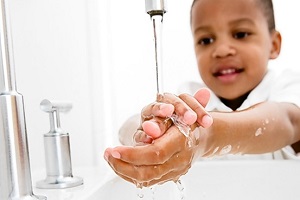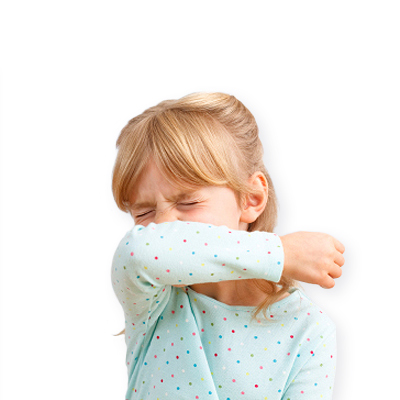 The average child has six to 10 colds a year, and every parent knows how easily colds are passed to other family members once one child gets sick. Unfortunately, in some ways, getting sick when you're a kid is simply part of the job description
The average child has six to 10 colds a year, and every parent knows how easily colds are passed to other family members once one child gets sick. Unfortunately, in some ways, getting sick when you're a kid is simply part of the job description
Why do kids pick up everything once they go to school?
Children's immune systems are less mature than those of adults, so they're more susceptible to germs. At school, kids are in close contact with each other. They tend to have germy habits, such as sticking fingers and objects in their mouths. Adults have come across many of the childhood illnesses over the years and developed immunity to them.
Prevention is the best medicine
Make sure your child is up to date on scheduled immunisations. If you have missed one along the way, you can still catch up free-of-charge at any GP. It is easy to lose track. If you have a few kids or have moved house, sometimes you may have missed out on a vaccine. Your practice nurse should be easily able to check this for you. If your child is asthmatic or has an underlying health problem, it is worth checking if there are extra vaccinations such as the flu vaccination that they should be getting.
Teach your children the importance of hand washing
In an ideal world, children would wash their hands many times a day in school. In the real world, the most important times to wash are after using the bathroom and before eating, drinking, or touching their mouth, eyes, or nose. Some classrooms also provide hand sanitiser. Hand washing is the number one way to prevent the spread of germs at school.
Teach your child germ etiquette
It is as simple as “Catch it, bin it, kill it!” Make sure your child has a pack of tissues in their bag if they are at school. Teach your child to stay away from sick children as much as possible - this can be done by explaining that coughs and sneezes spread germs, and that we are not trying to be rude but staying healthy. On the other hand, your child should cover coughs and sneezes to prevent spreading infection if he or she is sick. Where possible, sneeze into a tissue and throw it in the bin right after, then wash his/her hands. Otherwise, he/she should cough or sneeze into crook of his elbow, not their hands.

Practical tips:
Bring a pencil case
-
Supply your child with their own pencils, crayons etc. They will have less risk of picking up an illness from sharing these objects.
Don't share everything at school
-
It's simple to remember what is okay to share at school
-
Do not share own food and drinks
-
They shouldn’t share hats or helmets
-
Bring own pack of tissue
Build up your immunity from the inside
We can actually take measures to boost their defences, speed healing, and help them to gain a greater level of wellness:
- Serve more fruits and vegetables, e.g. carrots, green beans, oranges, strawberries: They all contain such immunity-boosting phytonutrients as vitamin C and carotenoids.
- Increase sleeping time: Studies of adults show that sleep deprivation can make you more susceptible to illness by reducing natural killer cells, immune-system weapons that attack microbes - it stands to reason that the same is true for children.
- Breast-feed your babies: Breast milk contains turbo-charged immunity-enhancing antibodies and white blood cells. Nursing guards against ear infections, allergies, diarrhoea, pneumonia, meningitis, urinary-tract infections, and sudden infant death syndrome.
- Exercise: Regular exercise is shown to improve the immune system in adults and children.
- Banish second-hand smoke: Children are particularly susceptible to the damage of second-hand smoke, and it makes them more likely to get asthma, chest infections and ear infections, apart from all the other long term health implications. If someone insists on smoking in your home, make them go outside to do so.
- Never think antibiotics are the solution: The majority of childhood disorders are viral and antibiotics can do nothing for them. Urging your doctor to write a prescription for an antibiotic whenever your child has a cold, flu, or sore throat is a bad idea. Antibiotics treat only bacterial illnesses - if we feel your child needs them they will be prescribed for a bacterial illness.







